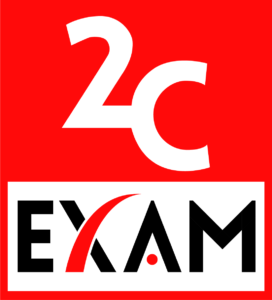Is it an HKSI license or an SFC license or an HKMA license?
What is the 178 license?
We often hear people mention the 178 license, what does that mean exactly? In fact “178 license” is a common misnomer. 178 does not refer to a license, but a combination of exam papers that need to be taken; that is, a combination of three exam papers, paper 1, paper 7, and paper 8. In Hong Kong, assisting clients in buying and selling securities and other related business for a fee are regulated activities. A license must be obtained before these regulated activities can be carried out. One of the competency requirements of applying for a license to become a representative and/ or responsible officer is to pass the designated exam combination of HKSI (Hong Kong Securities and Investment Institute) LE (Licensing Examination). Therefore, those who wish to engage in regulated activities in the securities industry need to register for the LE exam at HKSI. However, passing the exam itself does not mean successfully obtaining a license! So passing the exam, it does not mean that you have a license. You must meet other licensing requirements, such as age, education, work experience, criminal record, and financial status, before you can apply for a license.
Where should I register for the securities exam?
The institution that holds the Licensing Exam (LE) for securities and futures practitioners is the HKSI, and the examination is recognizable as one of the licensing conditions in Hong Kong. However, HKSI only holds examinations. Licenses for regulated activities in the securities industry is approved by the Securities and Futures Commission (SFC). The SFC is independent of the Hong Kong government. It is a statutory body responsible for overseeing Hong Kong’s securities and futures markets. It is also a regulator of Hong Kong’s securities industries, but its functions do not include conducting examinations. Therefore, the exam must be conducted through the HKSI, and not the SFC.
To apply for an SFC license, sometimes it is necessary to apply for more than one examination and obtain a passing grade in each. The most popular combination of examination papers are HKSI LE Papers 1, 7, 8. The HKSI LE exam has 14 different exam papers. Those who do not have any work experience in the securities industry but intend to make entry into the securities industry need to take a specified combination of test papers based on the type of activity they are hoping to engage in. In other words, selling or providing different services or products requires one to take different exam paper combinations. For example, if you want to trade securities products such as Hong Kong stocks, US stocks, bonds, etc. on behalf of your clients, you need to take HKSI LE papers 1, 7, and 8. Or if you want to work in an asset management company and deal with products related to funds or discretionary accounts, you may need papers 1, 7, and 12. You can first refer to the following chart to estimate what combination of exam papers you need to take, and then refer to the exemption conditions to determine whether you need to take the entire combination of exam papers.
For exemption information, please reference:
What people are commonly referring to when they mention the term “ SFC license”?
The Securities and Futures Commission is the SFC, which is the statutory regulator of the securities industry in Hong Kong. The SFC was established under the Securities and Futures Ordinance, and its responsibility is to ensure that the securities industry is fair and orderly. The SFC is independent of the Hong Kong government, but is given the power to make subsidiary legislation, investigate the affairs of the securities industry, grant and revoke licenses for regulated activities in securities and futures industry. If a company (a company that is not a bank or an authorized financial institution) wants to be qualified for conducting a regulated activity, it needs to obtain a license from the SFC for the regulated activity under the legal requirements. Employees who conduct regulated businesses under the organization’s name will be referred to as licensees after being licensed. Complaints on a licensed corporation or a licensee will be handled by the SFC. If you want to search for basic information regarding the licensee or a licensed corporations such as license number, license type, company, etc., you can:
- Go to the SFC’s register public search: https://apps.sfc.hk/publicregWeb/searchByName
- Enter its full name in Chinese or English, or the CE code.
- Search
What is an HKMA license?
The Hong Kong Monetary Authority (HKMA) is the statutory regulator of Hong Kong’s banking industry. The HKMA is an independent statutory body. One of its major functions is to regulate and authorize banks or authorized financial institutions (ie licensed banks, restricted license banks and deposit-taking companies), including industry regulations and compliance in the banking industry. In Hong Kong, the business of banks is diversified. Some banks even participate in the securities business. But the HKMA is not the main regulator of the securities industry. The SFC is the expert in this area. However, the SFC does not want to have more workload, and does not want to issue licenses directly to banks, which will complicate the regulatory framework. Banks that need to conduct regulated securities business are therefore jointly supervised by the Securities and Futures Commission and the HKMA. The HKMA will provide direct front-line supervision, and the SFC will only cooperate passively.
Therefore, banks that conduct securities business will only be registered as “registered institutions” with the Securities and Futures Commission, not “licensed corporations” directly licensed by the Securities and futures Commission. Therefore, employees who conduct regulated activities in “registered institutions” are also registered with the SFC and are called registrants, not licensees. It is also worth mentioning that although these registrants are registered with the Securities and futures Commission in name, in fact all forms and communication are carried out with the HKMA. If there is any complaints on registered institutions or registrants, the HKMA will also handle it. ( Reference Information: https://www.sfc.hk/en/Regulatory-functions/Intermediaries/Licensing/Types-of-intermediary-and-licensed-individual)
If you want to search for basic information about a registrant in HKMA’s public search, such as license number, license type, company, etc., you can go to the HKMA’s public search Link: https://apps.hkma.gov.hk/eng/index.php? c=search&m=search_by_name
- Read and agree to the statement to continue
- Enter its full name in Chinese or English (the first or last name cannot include extra spaces), or the registration numberFor example, Chan Tai Man, if you enter ” Chan Tai Man” or “Chan Tai Man “, the search results will not be displayed correctly.
- Enter confirmation code
- Search
How can we help?
2CExam provides HKSI LE, IIQE, EAQE and SQE related exam preparation materials. We sell mock question banks for HKSI LE Papers 1, 2, 3, 5, 6, 7, 8, 9, 12 in Chinese and English; and bibles for HKSI LE Papers 1, 2, 6, 7, 8 in Chinese. We also offer 1 on 1 tutorial services. Besides, we have also made free tutorial videos for HKSI LE Papers 1, 2, 6, 7, 8, 12 and posted on public channels such as Youtube/ Bilibili/ Tencent/ Iqiyi. 2CExam has been an exam training expert for years. Should you need any help please visit www.2cexam.com or contact us through:
Phone +852 2110 9644 Email: [email protected] Wechat: hk2cexam WhatsApp: +852 9347 2064
Please support us by leaving comments and likes if you think this article helps you!
You can scan or click on the QR codes to visit our social media.
Latest Article
Categories
過往文章
Contact US
-
Phone:
+852 2110 9644
-
Email:
-
WhatsApp
+852 9347 2064
-
WeChat
hk2cexam
Interesting Articles
Is the IIQE paper based exam or computer based exam easier? Which exam is better to partake in?
Many people are curious about the differences between the IIQE’s computer-based exam and the paper-based exam. As per the two exams’ content, they are pretty much identical. The two exams use the same Study Guide, the exam questions are drawn in the same question bank. Some people say that they have taken a…
Is the HKSI paper-based exam or the computer-based exam easier? Which is better to partake in?
Many people are curious about the differences between the HKSI LE’s computer-based exam and the paper-based exam. As per the two exams’ content, they are pretty much identical. The two exams use the same Study Guide, the exam questions are drawn in the same question bank. Some people say that they have taken…
What are the differences between a computer-based and paper-based exam for the Estate Agents / Salespersons Qualifying Examinations?
There are differences between the computer-based exam and the paper-based exam? Some people say that the computer-based exam / paper-based exam will be easier? Many people are curious about the differences between the EAQE/SQE’s computer- based exam and the paper- based exam. As per the two exams’ content, they are pretty much…
What is the difference between the computer-based exam and the paper-based exam of the Insurance Intermediaries Qualifying Examination
Many people are curious about the difference between the IIQE’s computer-based exam and the paper-based exam. First of all, IIQE does not hold many paper-based examinations. In many cases, it will only hold paper-based examinations for Paper 1. If you have special needs, such as not being proficient with computers, or having a vision…
What are the differences between the computer-based exam and the paper-based exam of the Licensing Examination for Securities and Futures Intermediaries (LE)?
There are differences between the computer-based exam and the paper-based exam? Some people say that the computer-based exam / paper-based exam will be easier? Many people are curious about the differences between the HKSI LE’s computer-based exam and the paper-based exam. First of all, HKSI does not hold many paper-based examinations. In many…
Which Licensing Examination for Securities and Futures Intermediaries exam paper should I partake in?
If you want to work in the front line of the securities industry, you have a good chance of needing to take The Licensing Examination for Securities and Futures Intermediaries. As for what test papers you need to take, first of all, you need to know that the number of the exam paper has…
If I have an overseas professional qualification, can I obtain a SFC securities license simply by recognising my prior qualification
Some students have worked in the securities finance industry outside of Hong Kong, and now they also need to obtain a securities business license in Hong Kong. Can work experience in the securities industry abroad help you waive the exam and allows a candidate to directly apply for the securities license from the Securities…
In order to obtain exemption from the HKSI LE exam or SFC’s academic requirement, how is relevant industry experience considered?
After reading the “Competency Guidelines” issued by the Securities Regulatory Commission, some students may have a big question mark on “Relevant Industry Experience”, “have X years of experience in the past X years”, and then ask us what kind of experience are counted as industry experience so they can be exempted from the Licensing Examination…
Which insurance intermediary qualifying examination paper should I take?
If you want to work in the front line of the insurance industry, you have a good chance of needing to take the Insurance Intermediaries Qualifying Examination (IIQE). As for what exam papers you need to take, first you can check whether you meet certain conditions to be exempted from specific exam paper combinations…
The difference between IA Responsible Officer(RO) and technical representative (TR)
Regulatory Organisation Before explaining the difference between Responsible Officer and Technical Representative, you must first know that there is only one regulatory agency that regulates companies engaging in insurance business: the Insurance Authority (IA). All the powers concerning licensing matters, supervision tasks, sanctions and investigations of intermediaries of insurance intermediaries, insurance companies and insurance…







